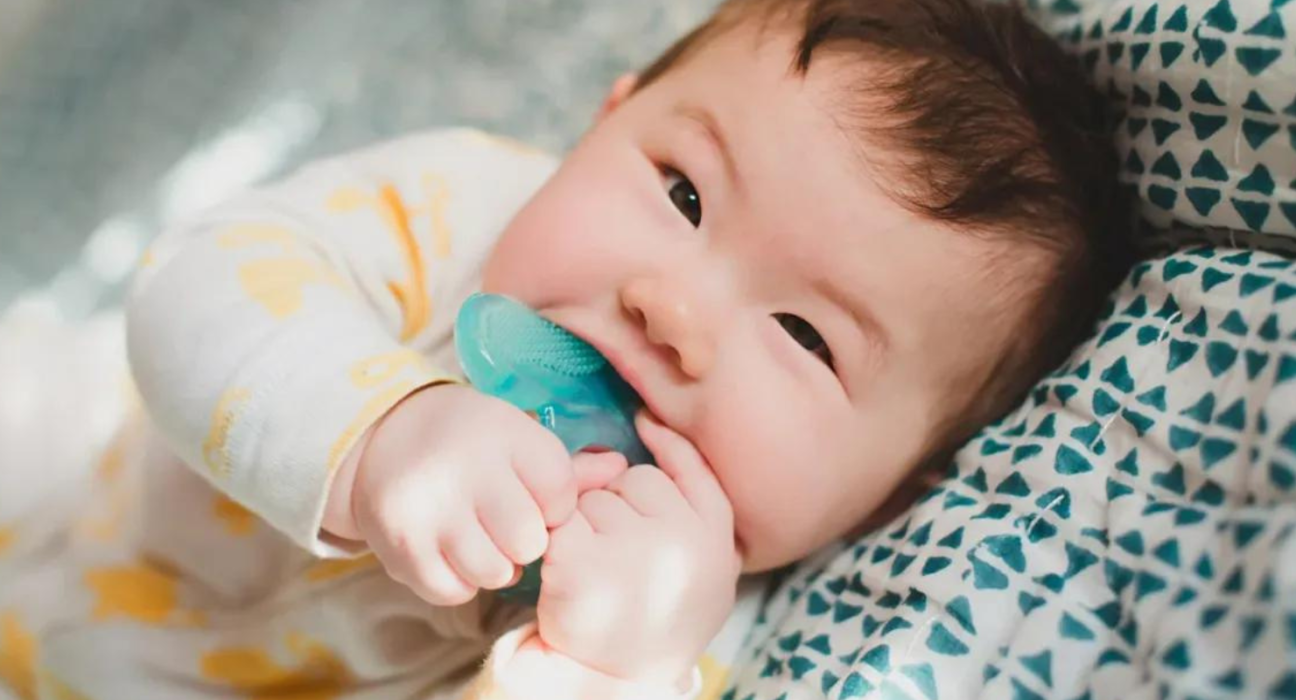Well, that assumption is incorrect. Dental care should commence right from the beginning, we recommend visiting the dentist as soon as the first tooth appears for a check-up and basic guidance. Additionally, it’s crucial to start brushing twice a day with an age-appropriate toothpaste – once in the morning and again at night.
However, dental care goes beyond a simple once-over with a toothbrush. Diet also plays a vital role in ensuring the health of your baby’s teeth. Even seemingly healthy foods and drinks can be detrimental. Below we’ll provide tips on baby teeth cleaning, and insights into teething problems and solutions.
How to Brush Baby’s Teeth
Brush your baby’s teeth in the morning and at night using a small, soft brush with age-appropriate toothpaste. Check the fluoride content, which should be 1,000ppm for children up to three years old.
Position your baby or toddler with their back against your tummy, holding the brush against their teeth as if you’re brushing your own teeth. Alternatively, use a technique that works for you and your child.
Encourage toddlers to spit after brushing, but don’t let them rinse their mouth with water. Keeping fluoride on their teeth is crucial for protection.
Supervise the brushing, with parents taking responsibility. Consider using a chart to promote good habits.
Tip: Many breakfast cereals, including wholegrain ones, are loaded with sugar. Opt for Weetabix or porridge.
Food for Thought
Stop breastfeeding and bottle feeding by the age of one to prevent dental caries. If continued, clean teeth after the last feed, and provide only water at night.
Limit sugary foods and drinks, offering them only at mealtimes. Reserve sweets and chocolates for once a week as a treat, and avoid biscuits entirely. Provide three meals a day with no more than one fruit snack. Fruit has its own intrinsic sugar and acid, so treat it as a dessert most of the time.
When do babies start teething, and how long will it last?
Teething symptoms can begin as early as three months or as late as 12 months. Primary teeth typically erupt by the age of two and a half. Be cautious of teething rusks containing sugar, which can cause decay in erupting teeth.
How will I know if my baby is teething?
Look out for tender gums, drooling, ear-pulling, mood changes, irritability, and crying as common teething symptoms.
How can I ease my baby’s teething symptoms?
Gently rub a clean finger over sore gums.
Keep teething toys or a clean, wet washcloth in the fridge for soothing gums. Avoid freezing teething toys to prevent damage to your baby’s gums.
Offer cold food purees, cold water, and chilled fruits or vegetables like carrot, banana, and cucumber for chewing. Supervise to prevent choking.
Provide a warm bath followed by a gentle massage with baby oil to help calm your little one.
Extra cuddles, attention, and distraction can be comforting.
